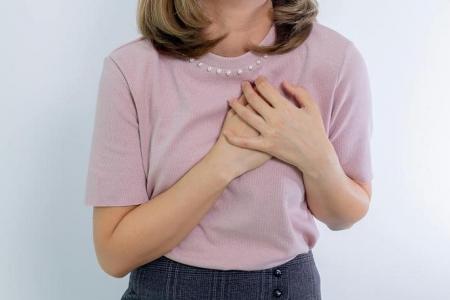Women react differently to heart failure treatment
Women have a smaller heart than men and experience different outcomes when undergoing treatment for heart failure. Yet, doctors here continue to use the same yardstick for diagnosis and treatment for both groups, causing therapies to work less well in women.
There is thus a need for change in guidelines on how women with heart failure are diagnosed and treated, said Professor Carolyn Lam, director of Women’s Heart Health at the National Heart Centre Singapore (NHCS).
Her research in the last decade has found that male and female patients respond differently to medical and device therapies for heart failure and cardiac rehabilitation, and they have different treatment outcomes.
“We are no longer simply describing – that women having heart failure are older, thinner, smaller, and more symptomatic. Now, we actually have demonstrable differences in response to therapy and results,” said Prof Lam, who is also a senior consultant in the Department of Cardiology at NHCS.
She said that although sex-related differences in epidemiology, risk factors, clinical characteristics and outcomes of heart failure are well known, research in the last decade has “only just shed light on an often overlooked aspect of heart failure: the influence of sex on treatment response”.
While there are similarities in how men and women respond to heart failure therapies, “the differences lie in treatment benefits, response to dosages, tolerability to medical therapy, device therapy and cardiac rehabilitation,” she noted.
Prof Lam cited the example of cardiac resynchronisation therapy, a treatment using a pacemaker to help the heart beat with the right rhythm.
“We found that if you apply the same criteria to a woman’s heart and give it the same therapy (as that for a man), the woman’s heart derives far more response. Intrinsically, a woman’s heart is smaller. By the time you apply the same guidelines to define abnormality as that of a man whose heart is bigger, then it would already be very serious for the woman,” she said.
Women also have more body fat, which means different drug treatments will have varying efficacies.
“With the same dose, you may get far more toxicity in women than men,” she added.
“Why then are we still continuing to use the same yardstick, which is always right for the man but not for the woman. That is the main reason for things being haywire,” she said.
“We need to define guidelines accordingly to what is normal for a woman versus what is normal for a man.”
Prof Lam also pointed out the bias in research.
“There are international studies where females are underrepresented, especially in all the heart trials, and even if they’re represented, the aggregated results are never looked at,” she said.
This male bias is seen across all fields of pre-clinical research, she noted.
Her findings were included in her review paper, published in peer review journal Nature Reviews Cardiology on March 8, where she made reference to about 250 studies.
“This is 10, 20 years of plodding on and telling people there is a difference. More research is needed to understand how men and women respond differently to heart failure treatments, and addressing these gaps could lead to better outcomes for both genders,” she said.
“One of the things that meant so much to me is the most recent New American Heart Association scientific statement and research on heart disease in women that was published in Circulation journal. It has finally set specific guidance for heart failure,” she added.
The statement highlighted heart disease as the leading cause of death for women and identified several sex-specific risk factors in women, including complications during pregnancy and premature menopause.
It also stated that unlike men, women have different symptoms of heart disease, are less likely to receive evidence-based therapies and more likely to have adverse outcomes after a heart attack.
“I hope with this, I will be able to push guidelines forward for doctors in Singapore to be mindful of these differences and address the risks for women with heart failure by asking the right questions,” she said.
Get The New Paper on your phone with the free TNP app. Download from the Apple App Store or Google Play Store now


